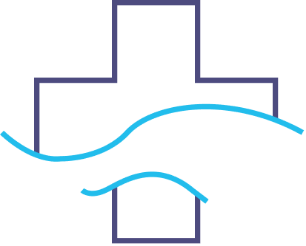CT scanning – sometimes called CAT scanning – is a noninvasive, relatively painless medical test
that helps physicians diagnose and treat medical conditions. CT imaging uses special x-ray equipment to produce multiple images or pictures of the inside of the body and a computer to join
them together in cross-sectional views of the area being studied. The images can then be examined
on a computer monitor or printed.
CT scans of internal organs, bone, soft tissue and blood vessels provide greater clarity than
conventional x-ray exams. There are two commonly used contrast media in CT. One commonly
used contrast to opacity the GI tract (stomach, small bowel, colon) is barium sulfate. This is usually
taken orally, but can be administered, in some cases, rectally. The volume of CT barium sulfate to
be administered will depend on the degree and the extent of contrast required in the area under
examination.
The Imaging Department will inform you of the amount and the time to drink your contrast when the
contrast is obtained from Nemaha County Hospital. Another contrast medium that contains iodine is
often injected into the blood intravenously (IV) during the scan. This contrast makes blood vessels
and other structures or organs more visible on the CT images. It may also be used to evaluate blood
flow, detect tumors and locate areas of inflammation. Intravenous contrast material is often used to
obtain images of the brain, chest, abdomen and pelvis; an oral contrast material is commonly given
for an abdominal and/or pelvis CT scan.
Click here for more information on IV contrast used at Nemaha County Hospital. Before the
administration of IV contrast the technologist will ask the patient if they have any medicine or iodine
allergies. A patient who has allergies is at higher risk of allergic reaction with the administration of IV
contrast. If the patient is over 60 years of age and having a CT exam with IV contrast, we require lab
test to evaluate kidney function within the last 30 days. Poor kidney function could cause potential
problems in the elimination of the IV contrast from the patient’s body. In some instances when kidney
function is lower than normal, normal saline will be administered through the IV before and after the
scan to increase hydration. At the time your physician’s office schedules the appointment, they
should inform you if you need lab work.

